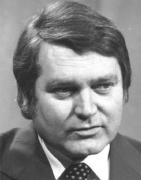|
|
||||||||||||||||||||||||
 |
Featured person
Recently added |
Wesley Greenhill Lyttle (1844 - 1896): |
||||||||||||||||||||||

|
| Wesley Greenhill Lyttle |
Wesley Greenhill Lyttle is thought to have been born near Newtownards, County Down, in 1844. (His second forename is often given as "Guard" but this is an error, as is shown by the probate of his will and published legal notices.
An accountant, a teacher of shorthand, an elocutionist, Lyttle was above all an entertainer, often in the guise of his alter-ego “Robin”, a jovial country farmer who regaled his audiences in Ulster-Scots. Lyttle had been a lecturer in Dr Corry’s Irish Diorama Company, which toured Britain, and America with a show entitled “Ireland, its scenery, music and antiquities”. For most of the 1870s he lived in Belfast where he began to write and perform his humorous monologues. In 1880 he established the North Down Herald in Newtownards. In 1883 Lyttle moved the newspaper to Bangor and added the title of Bangor Gazette.
He was the author of a great many poems and sketches in Ulster-Scots. His humorous monologues, recited in the speech of an Ards farmer, were reproduced in his newspaper and subsequently published as Robin's Readings. Betsy Gray or Hearts of Down, his most popular work, originally appeared in serial form in the newspaper beginning on Saturday 7th November 1885. It was printed in paperback in 1888; a third edition came in 1894 and an illustrated sixth edition was published in 1913 by Robert Carswell, revised by the antiquarian Francis Joseph Bigger. In 1968 the Mourne Observer of Newcastle, County Down, produced another reprint, with added Other Stories and Pictures of '98. The work was not primarily one of historical scholarship though it certainly was not fictional; a modern local historian of the area remarked that “because Lyttle has recorded the traditions from 1798 told at the Six-Road-Ends and Greyabbey areas, his work contains fragments of history not written down elsewhere.”
Much of Lyttle’s work was published in serial form, popular at the time (Dickens at once comes to mind). This was not totally uncritically accepted: the novelist Margaret Oliphant questioned “the violent stimulant of weekly publication with its necessity for frequent and vapid recurrence of piquant incident and startling situation.” Succinctly, an author would end each instalment with a “cliff hanger” simply to tempt the reader to buy the next issue.
He wrote two further novels, Sons of the Sod and Daft Eddie or the Smugglers of Strangford Lough (another serial). He regularly performed at various public events as “Robin Gordon of Ballycuddy”.
| Born: | 15 April 1844 |
| Died: | 1 November 1896 |
| Patrick Devlin |
| Acknowledgements: Additional material Richard Froggatt 12/2014, from www.ulsterscotslanguage.com/en/texts/biography/w-g-lyttle/ (Kenneth Robinson) |


Home | Our Policies | Plaques | Browse | Search | Sponsors | Links | Help | Contact
Privacy & Disclaimer | Cookie Policy | Site Map | Website Design By K-Point
© 2024 Ulster History Circle









